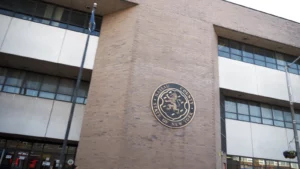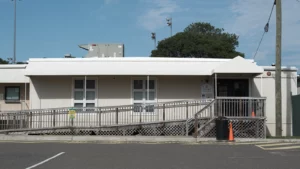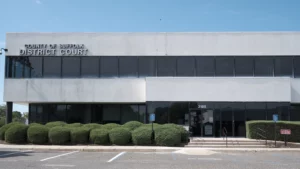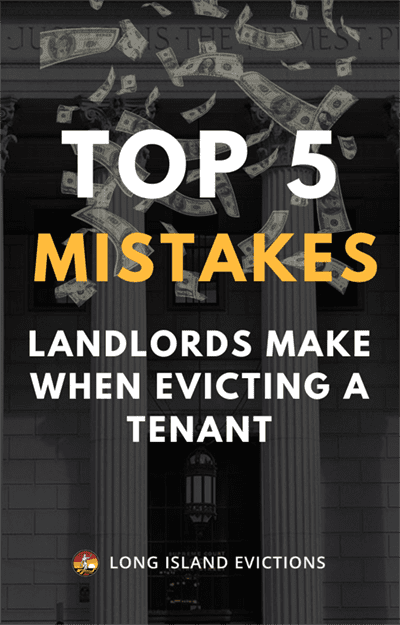Understanding the Importance of Rental History Reports
If you’re a tenant hoping to enter into a lease for a new apartment, you should understand the importance of rental history reports. Your rental history is essentially a background check involving a group of documents that landlords and property managers gather that summarize your track record as a tenant. Your rental history can include former evictions and late payments to prior landlords. Landlords and property managers use this information to evaluate the risk of renting to you.
Rental history reports are frequently used together with your credit report, credit scores, and other financial data to weigh your financial stability. After all, no landlord wants to rent to a tenant who is not financially reliable or stable. Landlords and Property managers prioritize tenants who have stable income sources, as it’s an indicator that they can pay the rent on time. For many tenants, late payments can show up in rental histories, which makes it difficult to qualify for new rentals or leases.
When completing new lease applications, honesty regarding any issues with prior leases is critical. Evidence that you have a history of paying the rent on time is obviously helpful, but if you haven’t, it’s essential to be upfront and honest about it. If you can also demonstrate reliable employment, it will help landlords and property managers to overlook issues in your past. But first, let’s learn what a rental history report is, and how you can get a copy of your rental history report.
What Information is Included in a Rental History Report?
A rental history report is a general term. There’s no one official rental history report. When a landlord or property manager says they’re going to run a rental history report on you, what they mean is that they’re going to primarily look at four things.
1. Your Credit Report – The landlord or property manager is going to run a credit check on you, and look at your credit score. As we all know, it’s quite common for landlords to run credit checks on new prospective tenants. This is because the landlord wants to make sure that you’re financially stable and semi-responsible and that you earn enough money to pay the rent. BUT, sometimes your credit report will also show late payments made to landlords, or evidence of broken leases or other eviction records from your past. This is usually most evident if you’ve ever had a judgment entered against you due to a prior eviction in court. If a prospective landlord or property manager sees you have a judgment on your credit report due to a prior eviction, they will take this as a warning not to rent to you.
So one the first steps prospective tenants can do is run their own credit report and view their credit history, and see what’s in it, keeping in mind your new prospective landlord will also have access to the same information in this document. Your credit report includes any judgments entered against you, your 6 year history of late payments made (if reported to the credit bureaus, which not every landlord does). It will even include a list of your previous addresses, as well as the years you’ve lived there. Often landlords will compare this to the information you have given them to see if you purposely omitted any apartments from your past on the application. If you have, they will sometimes reach out and ask the owner of the property what their experience with you was so they can make an informed decision as to whether or not they want to rent to you.
2. Your Criminal History – (note: in some states, it is not permissible for your landlord to view your criminal history or to use it as part of the rental evaluation process. But let’s be honest, most usually do, even if they don’t say they are). Some landlords will run criminal background reports on prospective tenants. Evidence of any drug use or violence or crimes involving dishonesty will be weighed heavily by prospective landlords. On occasion, a tenant will get into a physical or other altercation with a landlord that requires police intervention. A lengthy criminal record is often used by potential landlords as a sign to think twice about renting to a prospective tenant.
3. References – The third part of your rental history report is your references related to prior apartments. Your landlord of course will also ask for professional and personal references to verify your character, income and employment history. But you may also be asked to provide the addresses and contact information of all prior landlords as part of the property manager‘s screening process. The property manager or landlord wants to verify that you have a history of paying your rent on time and that you’ve been a good tenant. They also want to make sure you had no other issues with the rental property, such as excessive noise complaints or excessive damage. They even sometimes ask prior landlords if you received your security deposit back, or if you left the apartment a mess.
4. The local court docket – Not all local landlord-tenant courts are online yet. But if you live in a county with online access to court dockets, often a landlord or property manager will run your name through the court system to see if you’ve ever been a respondent in a landlord-tenant action. They will see your prior landlord’s name as the petitioner, and they will often reach out to them and ask what happened. In Nassau County and Suffolk County New York, your landlord-tenant case is active in the court system while the case is ongoing. But as soon as it’s resolved, the information no longer shows up in the database for prior searches.
These are the four most common reports that potential landlords look at in order to make informed decisions about the rental histories of new tenant applicants.
How to Check Your Rental History Report
Assembling a rental history report on a prospective tenant is an invaluable step for landlords as part of the rental application and tenant screening process.
So where does a landlord or property manager go to get access to these documents? Well, there are two options.
There are screening companies that specialize in issuing these types of rental history reports. But most smaller landlords just go through a manual process of going directly to the credit bureaus and reporting agencies and do it themselves. They go to the credit bureaus and run a credit check on you (after asking for your permission as part of the rental application process). Often they’ll just ask you to run your own credit report and credit score and provide them with the results as part of the screening process.
How to Check Your Credit Report for Your Rental History
So your first step is to go to annualcreditreport.com and run your credit report. This website will allow you to check your credit report for free. See what’s on there, and what a prospective landlord will see. If there’s anything negative in your credit report, work to clean up as much as you can. Remember, it can take 6 years or more for a negative item to fall off your credit report. So it’s best to be proactive rather than to wait it out.
Your credit report will also show your history of employment, and often your reported income. So make sure the information that you put in your rental application matches what your prospective landlord will see in your application. Because mismatched information will also be heavily weighed in the tenant screening process.
As for your criminal history, there are plenty of companies on the internet that will sell you a criminal background report. This is often where landlords go to verify the criminal background of prospective tenants.
And researching court dockets depends on what county you live in. Some are far more user-friendly than others, and it’s very easy for a prospective landlord to click a button and run a background report on you. For other counties, it’s impossible outside going to the courthouse and look through manual papers.
The Impact of Late Rent Payments on Your Rental History
Late rental payments can have a profound impact on your credit report if your landlord reports your late payments. Often smaller mom and pop landlords don’t bother to go through the process of reporting late rental payments. They typically wait until a tenant has to be evicted, and then they secure a judgment for any back rent owed, which (depending on the county), typically winds up on the tenant’s credit report as a judgment. But often bigger commercial landlords and apartment complexes will report delinquent rental payments to the credit bureaus.
Prospective landlords and property managers will see these late rent payments on your credit report if they are reported, and it will most likely impact your approval rating during the screening process when you apply to lease a new apartment.
Encourage the Reporting of Timely Rental Payments
One way to increase the quality of your rental history report is to ensure the reporting of timely rental payments. There are services like Rental Kharma that help tenants to report their own timely lease payments to the credit agencies. This will help to build up your creditworthiness and may even boost your credit score in the long run.
If you’re confident you’ll never be late with any future payments, then you can also ask your current landlord to start reporting your timely rental payments to the credit bureaus as well. Being able to demonstrate a positive financial history goes a long way during the tenant screening process. And prospective tenants should be aware of not only their credit scores but actively work to boost the reporting of their positive payment histories as well. But just remember, if you ask your landlord to report your payments and you’re late, then the landlord will report your lateness as well. So often it’s best to self-report.
What Property Managers Look for in Rental Applications
The role of property managers are similar to those of landlords during the tenant screening process. They both assemble their own version of your rental history report, depending on how thorough they are. And they’re both looking for the same things – any eviction records, general rental histories, late payments, and judgments from prior landlords. When it comes to your credit report, renters with a clean record go a long way for any applicant hoping to be offered a lease.
Additionally, property managers often look closer into applicants’ address histories and pay close attention to leases before making an informed decision. If the apartment cost in your lease is more than 30% of your income (which let’s be honest, it almost always is), property managers tend to investigate your ability to pay the rent more closely. Property managers also tend to be a bit more thorough in contacting prior landlords and verifying a tenant’s employment history.
The Screening Process: What Happens Next?
After you submit your rental application form to your potential landlord, the property manager or landlord typically commences a thorough screening process, either personally or through a screening company. This includes gathering their own version of Rental History Reports, criminal background checks, eviction reports, statements from previous landlords, and any other relevant documents. Anything that would help them to identify any common risks associated with prospective renters.
At the end of this research process, your rental history report will typically contain your proof of income, employment verification, rental history, details of late rent payments, lease violations, prior evictions, judgments, and often information regarding security deposit issues with prior rentals. This information is gathered primarily from your credit report, the local court dockets, and by contacting your references and prior landlords.
If all goes well and your prospective landlord feels you’ll make a good tenant after viewing your rental history report, you should be offered a rental agreement and you can move into the rental property.
What Should a Tenant Do to Ensure a Good Rental History Report?
As a tenant, you should work with credit bureaus and credit reporting agencies to ensure your credit reports reflect that you’re a good tenant with stable income that pays their bills on time. You should also ensure your previous landlords have positive things to say about you. So that when they are contacted by property managers as part of the screening process for new landlords, they have nothing but nice things to say about you as a tenant. So always try to leave apartments on good terms with the landlord.












